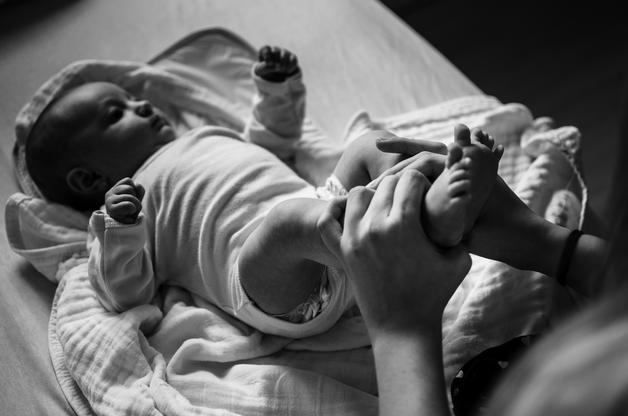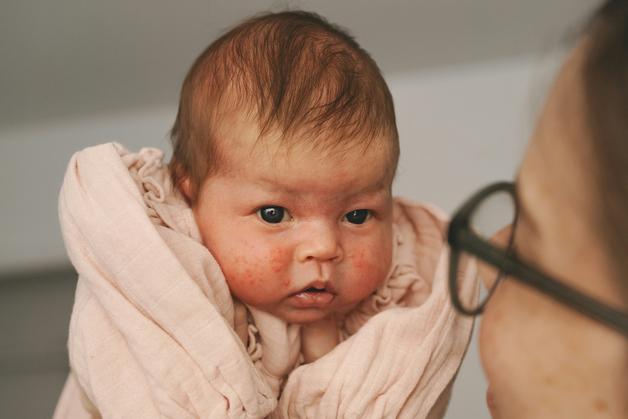Curious, concerned, or simply puzzled by the presence of mucus in baby stools? You are not alone if you’ve peered into your baby’s diaper, only to spot a slick, shiny streak or a jelly-like thread tangled in the stool. Perhaps you’ve wondered—is this a fleeting quirk, just another milestone in the endless parade of bodily surprises, or do I need to pay close attention? The sight of mucus in baby stools can prompt a cascade of questions, doubts, and sometimes even anxiety. From teething’s tidal wave of drool to unsettling digestive upsets, several roads may lead here. Let’s unravel the science behind what “mucus in baby stools” truly signals, spotlight when it’s ordinary, examine when it whispers a subtle warning, and outline the most informed steps for vigilant parents. You’ll encounter perspectives rooted in medical detail, real-life scenarios, and practical strategies, all tailored for the daily realities of family life.
What Is Mucus in Baby Stools? Appearance and Typical Patterns
The digestive tract, ever involved in silent labour, produces intestinal mucus—a lubricating and protective secretion. In baby stools, this often shows up as slick, shiny threads, jelly-like blobs, or even streaks that appear whitish, clear, yellow, or sometimes faintly greenish. Why such variation? Because an infant’s gut is a living, developing organ. Newborn meconium, thick and tar-black, gives way to yellow, loose, and occasionally lumpy movements in breastfed babies, with the occasional glint of mucus. Formula-fed infants may pass thicker, pastier stools, which, during changes in formula or minor digestive fluctuations, can also display a mild, almost transparent mucus.
Breast milk’s rapid digestion, plentiful saliva from teething, or a small cold can each increase the appearance of mucus in baby stools. Not to forget swallowed saliva—teething or congestion can mean extra fluids trickling into the digestive system, showing up unmistakably in the diaper. Green stools laced with mucus, for example, frequently result from rapid transit through the gut, minor irritation, or an immune system tuning itself to new foods or environments.
Common Causes of Mucus in Baby Stools: From Harmless to Significant
What prompts this slimy signature in your baby’s diaper? While a small, shiny thread often signals ordinary digestive adaptation, other scenarios demand careful observation:
- Swallowed Saliva and Nasal Secretions: Teething or runny noses ramp up drool and mucus production, most of which is swallowed, and, by a simple act of nature, lands in the stool.
- Immature Digestive System: Infants’ intestines, still maturing, sometimes react to new foods, minor infections, or simple stressors (yes, even a vaccination or a different formula) by producing extra mucus.
- Temporary Constipation: A body’s built-in solution: fluids and mucus, easing the hard passage.
- Diet Transitions: Shifts from breast milk to formula, the introduction of solids, or changing formulas—all these disrupt routines and may increase mucus production temporarily. Most babies bounce back as their gut realigns to the new norm.
Now, sometimes, mucus in baby stools points to something less benign and more persistent:
- Food Allergies (Cow’s Milk Protein Allergy, Soy Protein Intolerance, etc.): Undigested proteins or immune responses to specific foods often manifest as mucus, abdominal discomfort, and, in some cases, blood-streaked stools or excessive fussiness.
- Infections (Gastroenteritis, Colitis, Parasitic Infestation): Bacterial or viral invaders (think E. coli or rotavirus) inflame the mucosal lining, summoning an army of white blood cells and boosting mucus output—diagnosable by a combination of fever, diarrhea, sometimes vomiting, and blood.
- Chronic Inflammation (e.g., Cystic Fibrosis, Inflammatory Bowel Disease): Ongoing, frequent, bulky, foul-smelling, and mucousy stools occasionally point towards rare, but significant, conditions involving malabsorption or inflammation.
Possible emergencies? Certainly. Intussusception—where the intestine telescopes into itself—creates excruciating pain, sometimes followed by dark red, “currant jelly” stools mixing mucus and blood. Likewise, severe anal fissures may provoke mucus combined with blood, and will almost always be paired with clear discomfort during bowel movements.
Symptoms and Red Flags: When to Worry about Mucus in Baby Stools
How do you distinguish an innocent phase from a potential concern? Start with observation. If mucus in baby stools is sporadic and your baby thrives, feeds well, and seems content, chances are high you’re witnessing a benign event. Babies fighting a mild cold, adapting to new foods, or teething often demonstrate this pattern.
However, certain combinations require immediate attention. Take note of:
- Presence of blood—especially mixed in or pooling around the mucus
- Stool turning black, dark brown, or taking on an abnormal hue
- Persistent or excessive mucus in baby stools, especially beyond 2-3 days
- Signs of dehydration (reduced urine output, dry mouth, no tears when crying)
- Ongoing diarrhea, repetitive vomiting, or evidence of pain (unusual crying, visible irritability)
- Sudden lack of weight gain, dramatic weight loss, or ongoing poor feeding
- Extreme lethargy or unusual drowsiness
You might wonder—“Should I rush to the doctor for every streak of mucus?” The short answer: Not always. But if any of the above signs appear, a medical evaluation ensures safety.
What to Do When Mucus Appears in Baby Stools: Practical Steps for Parents
First, take a deep breath. Most mucus in baby stools clears up quickly without medical intervention. Still, smart monitoring pays dividends.
- Document Everything: When does it occur? How often? Any new foods, fevers, or stressors? Noting the consistency, color, and associated symptoms provides a goldmine of information for your pediatrician.
- Tweak Diet Cautiously: If you recently introduced a new food or shifted a formula brand, consider holding off until symptoms resolve. Gradual reintroduction can clarify the trigger.
- Hydration, Always: Whether breastfed, formula-fed, or on solids, ensure your baby is getting enough fluids. Babies with minor infections or teething often require more liquids.
- Observe for Progression: Improvement without other symptoms generally requires no further action. Persistence or worsening, especially with fever, blood, or behavioral changes? Time to consult your pediatrician.
How Doctors Investigate Mucus in Baby Stools
You may be surprised by the systematic and thoughtful approach healthcare providers adopt. It often starts with history and examination—considering diet, exposures, weight gain, and recent illnesses.
- Stool Analysis: Laboratory evaluation may look for infection (viruses, bacteria, parasites), presence of blood, or abnormal white blood cell counts.
- Allergy Workup: Cow’s milk protein allergy, for instance, might require an elimination diet or specific antibody studies.
- Advanced Diagnostics: When warranted by suspicious symptoms or persistent findings, abdominal ultrasound or X-rays probe deeper, ruling out surgical emergencies like intussusception or chronic inflammatory diseases.
Treatment: From Simple Reassurance to Active Intervention
Wondering if you’ll need medicines or drastic changes? The answer depends entirely on the cause.
- Mild, Benign Causes: Simple observation and support suffice for mucus in baby stools linked to teething, minor dietary changes, or transient constipation.
- Allergies or Intolerances: If a food allergy is confirmed, consider removing the trigger food (mothers who breastfeed might need to adjust their diet; formula-fed babies may benefit from hypoallergenic or elemental formulations under medical guidance).
- Infections: Most viral tummy bugs are self-limited; focus remains on fluids and feeding. Only confirmed bacterial infections may require antibiotics.
- Constipation: Fluids, gentle tummy massages, or age-appropriate dietary fibre—sometimes prescribed stool softeners—offer relief.
- Serious Diseases (e.g., Cystic Fibrosis): Require ongoing specialist involvement and tailored medical therapy.
- Emergencies: Immediate medical intervention, which could extend to surgery or hospitalization, is needed for life-threatening conditions like intussusception.
How to Prevent Digestive Issues and Mucus in Baby Stools
Can all cases be prevented? Not entirely, but you can certainly lower their frequency.
- Introduce new foods gradually—one at a time, allowing the gut to adjust and making it easy to pinpoint any culprit.
- Balanced Nutrition and Hydration—promote fibre-rich foods appropriate for age, while ensuring daily fluid needs are met.
- Impeccable Hygiene—clean hands before every meal or feed, and optimal washing of feeding and diaper-changing supplies staves off many infections.
- Track reactions—a symptom diary makes patterns clear, offering insights that speed up parent–doctor discussions.
- Regular Doctor Visits—scheduled check-ups provide space for open dialogue about concerns like mucus in baby stools and avoid potential complications through timely detection.
Supporting Your Baby and Your Confidence as a Parent
Babies, with their wordless cues, depend on parental intuition. When discomfort strikes, gentle tummy rubs, frequent feeds, soothing environments, or teething aids can prove invaluable. Above all, maintain a calm, observant stance—trusting your knowledge and instincts, but never hesitating to ask for help if mucus persists or is coupled with worrying symptoms. No question is too small when it comes to your little one’s well-being.
Key Takeaways
- Mucus in baby stools may look alarming, but in many cases, especially with teething, colds, or dietary transitions, it is part of normal growth and gut maturation.
- Persistent, copious, or blood-tinged mucus—or mucus in baby stools associated with fever, marked pain, vomiting, poor feeding, or lethargy—signals the need for professional guidance.
- Gentle dietary changes, optimal hydration, excellent hygiene, and systematic monitoring are central to both prevention and early detection of issues.
- The journey need not be puzzling or lonely—qualified healthcare professionals, regular check-ups, and confident parent observation light the way forward.
- For customized family support, practical advice, and FREE child health checklists, download the application Heloa.
Questions Parents Ask
Can teething lead to mucus in baby stools?
Absolutely. Teething produces copious saliva, much of which gets swallowed, appearing as mucus in the stool. If the baby seems otherwise cheerful and interactive, such findings require only observation. However, should new symptoms—like fever or blood—arise, timely advice from your healthcare provider is wise.
Does the presence of mucus in baby stools always mean infection?
No, not at all. Occasional mucus without other symptoms generally reflects the gut’s natural response to daily changes. Infection becomes more likely when mucus in baby stools is joined by fever, diarrhea, blood, or a markedly irritable or sick-appearing child.
Is mucus in baby stools seen with both breastfed and formula-fed infants?
Yes, and quite commonly so. Immature guts—regardless of feeding method—sometimes produce extra mucus, especially during periods of change. Keeping an eye on your baby’s overall health and comfort remains the best policy.
When should a paediatrician be consulted for mucus in baby stools?
If mucus persists beyond 2-3 days, returns frequently, or is joined by red flags (such as blood, fever, significant pain, vomiting, lethargy, or refusal to feed), a doctor’s assessment is advisable.
How are allergies linked to mucus in baby stools managed?
When an allergy is suspected, your medical advisor might suggest eliminating suspect foods, whether from the breastfeeding mother’s diet or through formula changes, under careful monitoring. Specific allergy testing may also be recommended.
Can changing formulas cause temporary mucus in baby stools?
Yes, dietary transitions are a well-known trigger. The reaction usually subsides within a few days as your baby’s gut adapts.
What role do infections play in causing mucus in baby stools?
Infectious episodes like viral gastroenteritis or bacterial colitis can provoke an inflammatory response, ramping up mucus production and sometimes accompanied by diarrhea, vomiting, or fever.
Is medical testing always needed if mucus is found in baby stools?
Routine testing is usually not necessary for a single, mild, unexplained episode. Persistence, blood, accompanying severe symptoms, or repeated occurrences warrant more thorough investigation by your paediatrician.
For all your lingering doubts about mucus in baby stools, trust a blend of keen observation and support from trusted health professionals. And, whenever needed, remember that resources like Heloa are there to help every step of the way.
Further reading :









